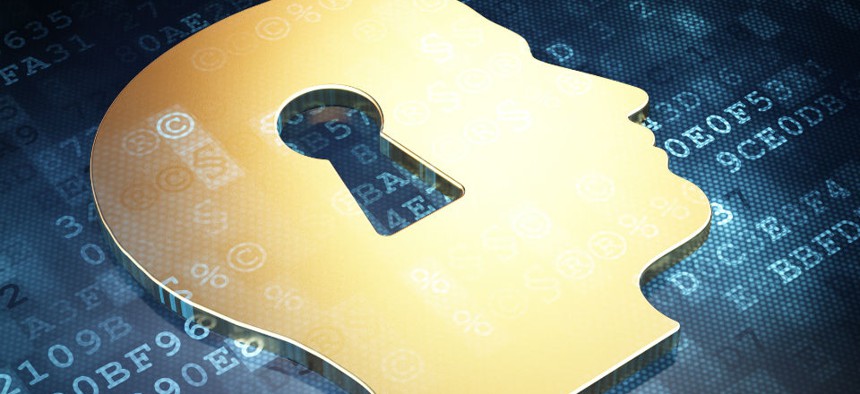One Airman's Journey From Linguist to Cyber Warrior

Maksim Kabakou/Shutterstock.com
Programs like the Cyber Warrior Scholarship and the post-9/11 GI Bill are helping veterans transition into cyber jobs.
Bryan Johnson, retiring after 20 years as a linguist in the Air National Guard. was eager to begin a new career. That’s when he discovered he was well suited to pursue a career in the in-demand field of cybersecurity. Better yet, he could pursue this new career in Salt Lake City, in the same unit where he spent his 20-year career.
“I was coming up on retirement, and the timing was perfect because the unit began hiring more contractors as the mission was expanding,” Johnson told Wired Workplace. “I was able to transition into a contracting position here, so instead of being a linguist for the unit, I was able to go right into an IT and information security job.”
Having already obtained his Security+ certification in 2010 as a requirement by the Defense Department’s 8570 directive, Johnson already had some basic knowledge of cybersecurity. When his employer rewrote the organization's statement of work to require both Security+ and the Certified Information Systems Security Professional (CISSP) designation, Johnson saw an opportunity to improve his skills, although potentially at a significant cost -- roughly $4,000, all at his own expense.
While researching the CISSP certification one evening last spring on the website of nonprofit certification body (ISC)2, Johnson learned of the new Cyber Warrior Scholarship program, offered by the (ISC)2 Foundation and Booz Allen Hamilton. The scholarship. for qualifying military veterans, covers all expenses associated with a cybersecurity certification, including training, textbooks, mobile study materials, testing and the first year of certification maintenance fees.
Johnson was one of six veterans in 2013 to receive the first round of Cyber Warrior Scholarships. This year, (ISC)2 and Booz Allen Hamilton will award up to twelve scholarships to qualifying veterans over three application periods, increasing applicants’ chances for selection.
“I started studying and found out the CISSP is a great foundation for what I do,” Johnson said. “It’s been a perfect transition for me because the job was here and I had an interest in it. And it’s perfect for the unit because they get someone who’s been here for 20 years.”
Military veterans have frequently been touted as a rich source of talent to groom for the in-demand cybersecurity field, but some experts have questioned the notion that just anyone can become a cyber warrior.
While Johnson admits that having a least a mild IT background helped him pursue his new career, he does believe that many veterans, particularly those transitioning into retirement, can be successful in the field if they devote enough time to it. He advises military personnel nearing retirement or transitioning to civilian life to begin studies in the field on their own. Programs like the Cyber Warrior Scholarship and the post-9/11 GI Bill also could help veterans transition into the emerging cyber field, Johnson said. “One of the best benefits for military folks to transition from their jobs in the military to a contracting position supporting DoD is the opportunity to continue to support the mission that we spent so much time, sacrifice, and for some, shed blood and limbs,” he said.
Besides a passion for his newfound career, Johnson is also happy about the great benefits, competitive pay and job security that it provides, particularly in a time of tight budgets.
“Information assurance and security is so critical to the work in the intelligence community,” he said. “And with such a growing field, it helps secure my future. Everything is changing so rapidly with budgets, and it’s a whole different atmosphere than it was 10 years ago.”
(Image via Maksim Kabakou/Shutterstock.com)






